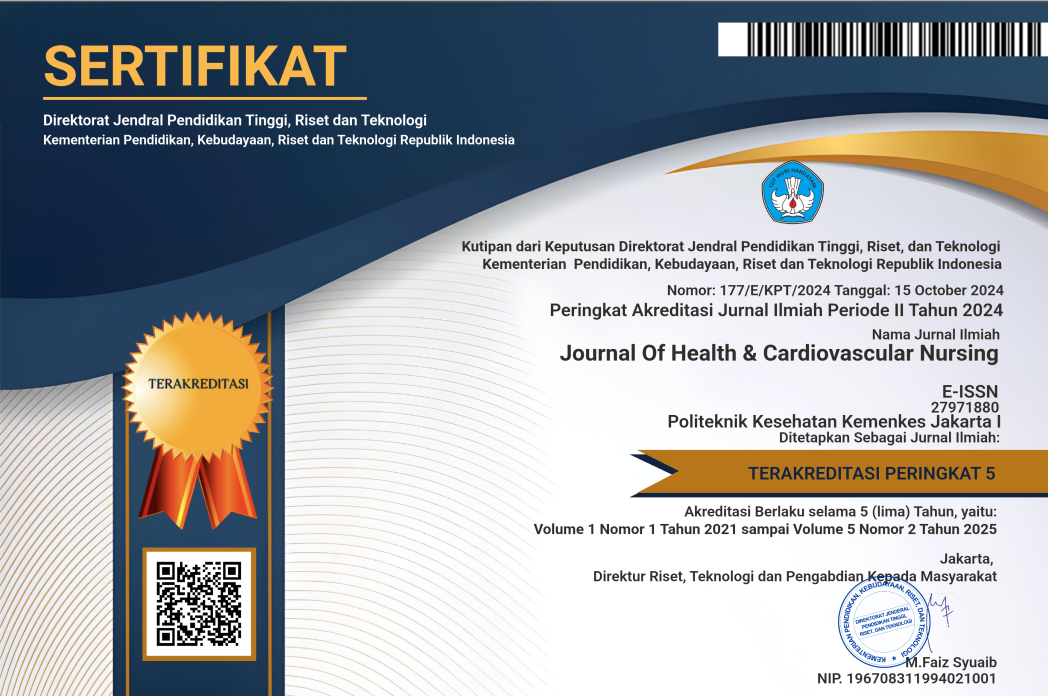Parenting of Working Mothers of Providing Food Intake on The Growth of Preschool-Aged
Keywords:
Anak prasekolah, Pertumbuhan, Pemberian asupan makanan, Pola asuh ibu bekerjaAbstract
Growth is necessary for everyone in stage of life. Preschool age is 3-6 years which are they have a critical phase inchildren, the surrounding environment have to support children. Career Woman have dual role as worker andhousewives. Career Woman have less attention to their children in the growth of stage, which is mothers have animportant role to providing care. This study used a descriptive analytic method with a cross sectional approach. Thesamples taken in this study were 67 people, using simple random sampling technique. The results of the study based onthe results of the Chi Square test obtained p value = 0.450 > ? = 0.05 refers to Ho failed to be rejected or accepted,meaning that there is no relationship between food intake and the growth of preschool-age children in East CilebutVillage. One of the major factors is the nutritional status of children is parenting style. Mothers has crucial role in leadhealthy eating to maintain established children feeding patterns. Based on this phenomena, increase knowledge isnecessary for build good parenting for career woman, through education and health promotion such as conductcounseling about spending time with their children. To increase children's growth, mothers could use effective variouskinds of therapheutic games.Downloads
References
Diskominfo Kabupaten Bogor. (2019). Desa Cilebut Timur Kecamatan Sukaraja Kabupaten Bogor.
Inggriani, D. M., Rinjani, M., & Susanti, R. (2019). Deteksi Dini Tumbuh Kembang Anak Usia 0-6 Tahun Berbasis Aplikasi Android. Wellness And Healthy Magazine, 1(1), 115–124.
Irmaida, I., Briawan, D., & Martianto, D. (2021). Analisis Faktor Internal Dan Eksternal Dalam Percepatan Penurunan Stunting: Studi Kualitatif Di Kabupaten Bogor. Media Gizi Indonesia, 16(2), 86. https://doi.org/10.20473/mgi.v16i2.86-95
Kementrian Kesehatan Republik Indonesia. (2021). Profil Kesehatan Indonesia 2020. In Kementrian Kesehatan Republik Indonesia.
Komariyah, S., & Wijayanti, A. R. (2019). Gambaran Pertumbuhan (BB/U, TB/U, BB/TB) Anak Usia 4-5 Tahun (Di TK Endah Bandar Lor Kecamatan Mojoroto Kota Kediri). Jurnal Kebidanan, 8(1), 30–39. Retrieved from https://akbid-dharmahusada-kediri.e-journal.id/JKDH/index
Latifah, E. W., Pranaji, D. K., & Puspitawati, H. (2016). Pengaruh Pengasuhan Ibu dan Nenek terhadap Perkembangan Kemandirian dan Kognitif Anak Usia Prasekolah. Jurnal Ilmu Keluarga Dan Konsumen, 9(1), 21–32. https://doi.org/10.24156/jikk.2016.9.1.21
Lestari, R. (2022). Penigkatan Kapasitas Petugas dalam Pengelolaan Program Gizi Makro. Retrieved from https://diskes.jabarprov.go.id/informasipublik/detail_berita/R0dSOTdSOFkrQy8xSUNpZHZybjJOQT09
Marpaung, R. V. P., Samodra, Y. L., & Harjosuwarno, S. S. (2021). Hubungan Pola Asuh Terhadap Status Gizi Pada Anak Tk Di Kota Yogyakarta. Jurnal Ilmiah Kesehatan Media Husada, 10(1), 1–9. https://doi.org/10.33475/jikmh.v10i1.238
Muhammad, N. A. A. S. (2018). Penyakit Infeksi Dan Pola Makan Dengan Kejadian Status Gizi Kurang Berdasarkan Bb/U Pada Balita Usia 6-24 Bulan Di Wilayah Kerja Puskesmas Tanah Sepenggal. Kementerian PPN/Bappenas, 7(1), 66.
Purwani, Erni, & Mariyam. (2013). Pola Pemberian Makan Dengan Status Gizi Anak Usia 1 Sampai 5 Tahun Di Kabunan Taman Pemalang. Jurnal Keperawatan Anak, 1(1), 30–36. Retrieved from http://download.portalgaruda.org/article.php?article=98477&val=5091
Putri, S. M. A. (2019). Pengaruh Status Pekerjaan Ibu Terhadap Asupan. Universitas Muhammadiyah Surakarta.
Rapar, V. L., Rompas, S., & Ismanto, A. Y. (2014). Hubungan pola asuh ibu dengan status gizi balita di wilayah kerja puskesmas ranotana weru kecamatan wanea kota manado. 1–7.
Rustati, N., & Suryanda. (2019). Hubungan Pola Asuh Orang Tua Bekerja dengan Kemandirian Anak Pra Sekolah. Jurnal Ners Dan Kebidanan, 6(1), 35–43. https://doi.org/10.26699/jnk.v6i1.ART.p035
Saputra, S., Suryani, K., Pranata, L., Katolik, U., Charitas, M., Palembang, S., & Age, G. (2021). Studi Fenomenologi?: Pengalaman Ibu Bekerja Terhadap Tumbuh Kembang Anak. Indonesian Journal of Health and Medical, 1(2), 151–163.
Sari, M., & Rahmi, N. (2017). Faktor-Faktor yang Mempengaruhi Pola Asuh Orang Tua pada Anak Balita di Desa Batoh Kecamatan Lueng Bata Kota Banda Aceh. Journal of Healthcare Technology and Medicine, 3(1), 94. https://doi.org/10.33143/jhtm.v3i1.262
Soetjiningsih, & Ranuh, I. N. G. (2017). Tumbuh Kembang Anak (2nd ed.). Jakarta: Buku Kedokteran EGC.
WHO. (2019). World Health Statistics of 2019.
Wulandari, U. R., Budihastuti, U. R., & Poncorini, E. P. (2017). Analysis of Life-Course Factors Influencing Growth and Development in Children under 3 Years Old of Early Marriage Women in Kediri. Journal of Maternal and Child Health, 02(02), 137–149. https://doi.org/10.26911/thejmch.2017.02.02.05
Published
Issue
Section
Copyright (c) 2022 Journal of Health and Cardiovascular Nursing

This work is licensed under a Creative Commons Attribution-ShareAlike 4.0 International License.









